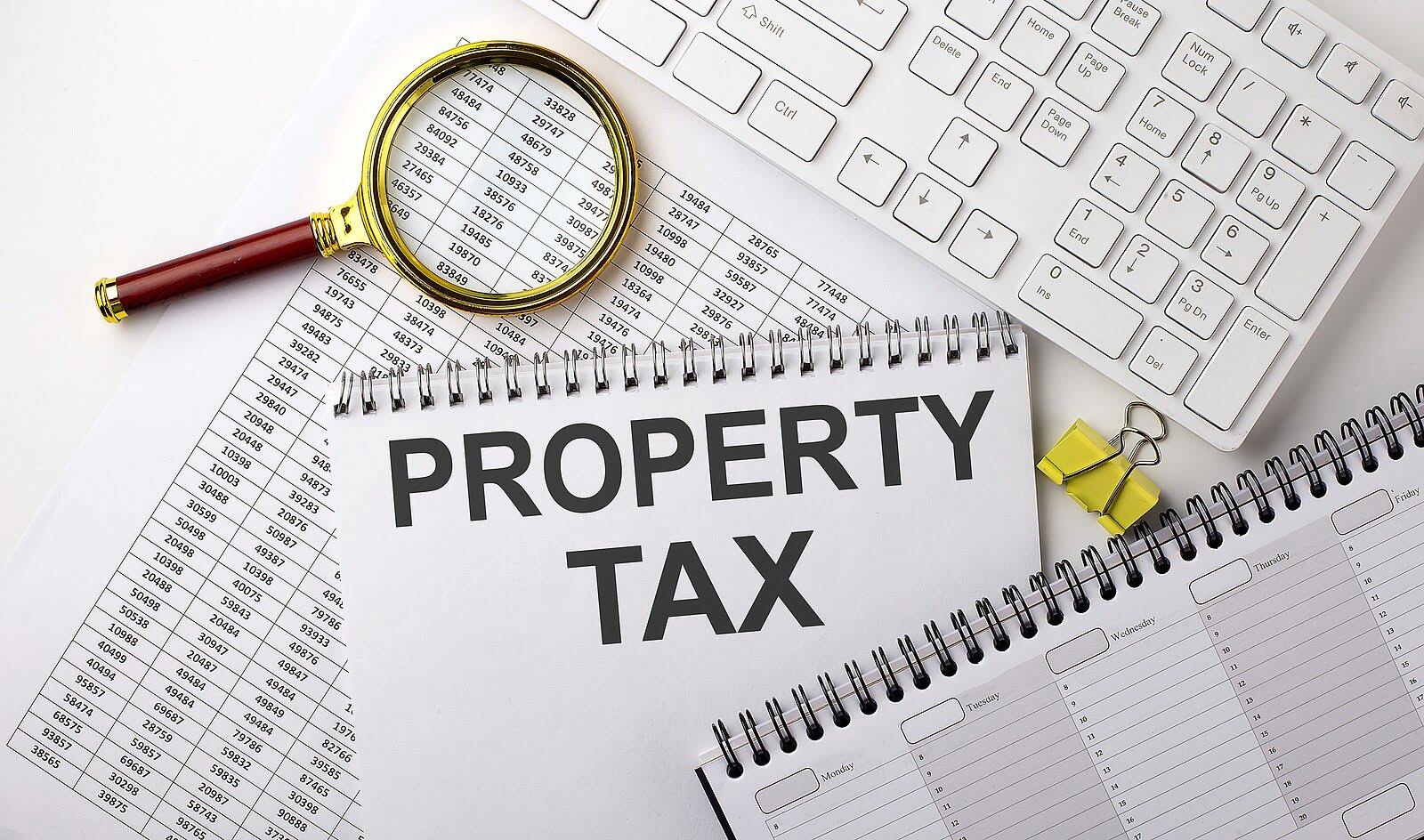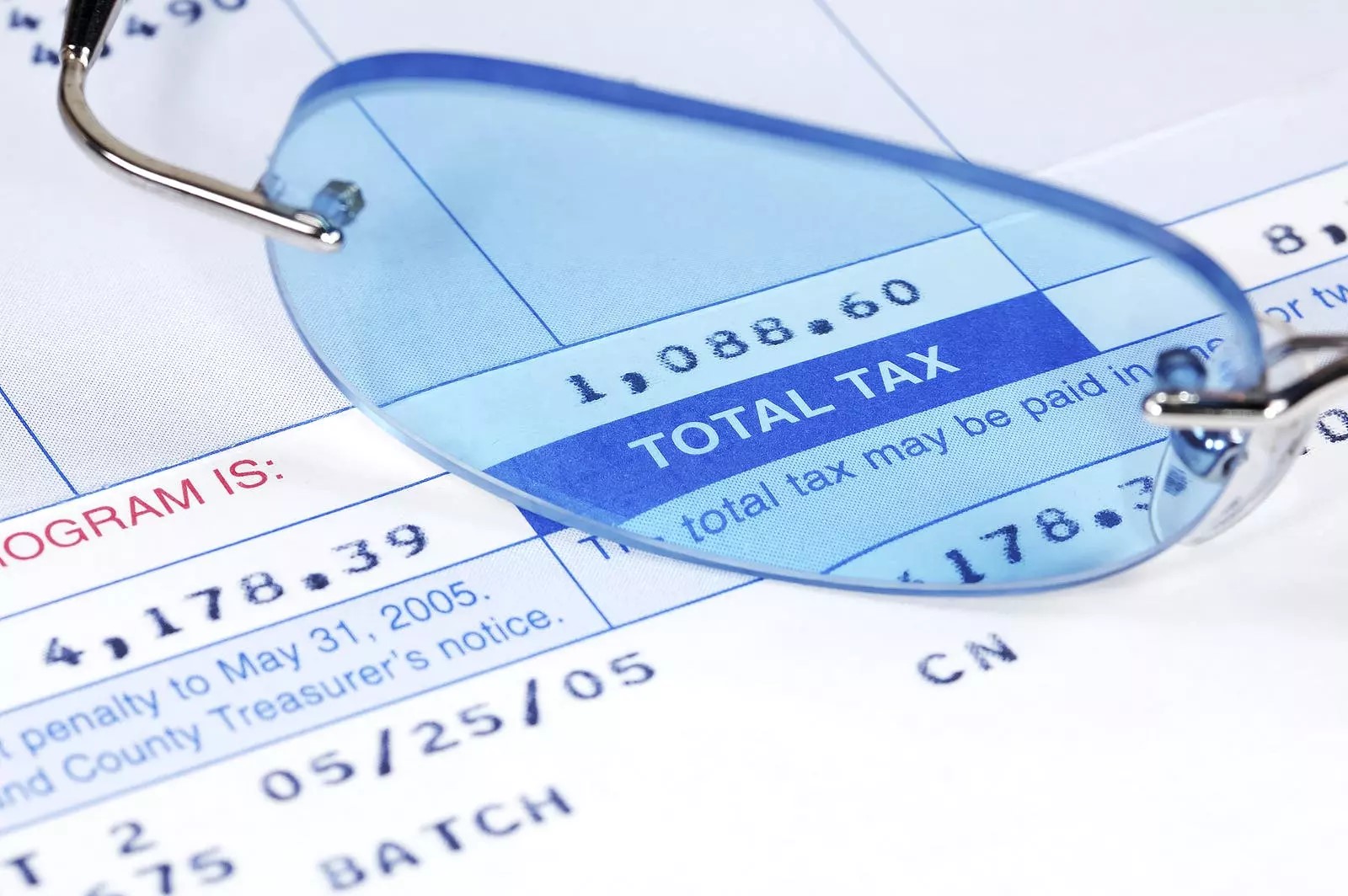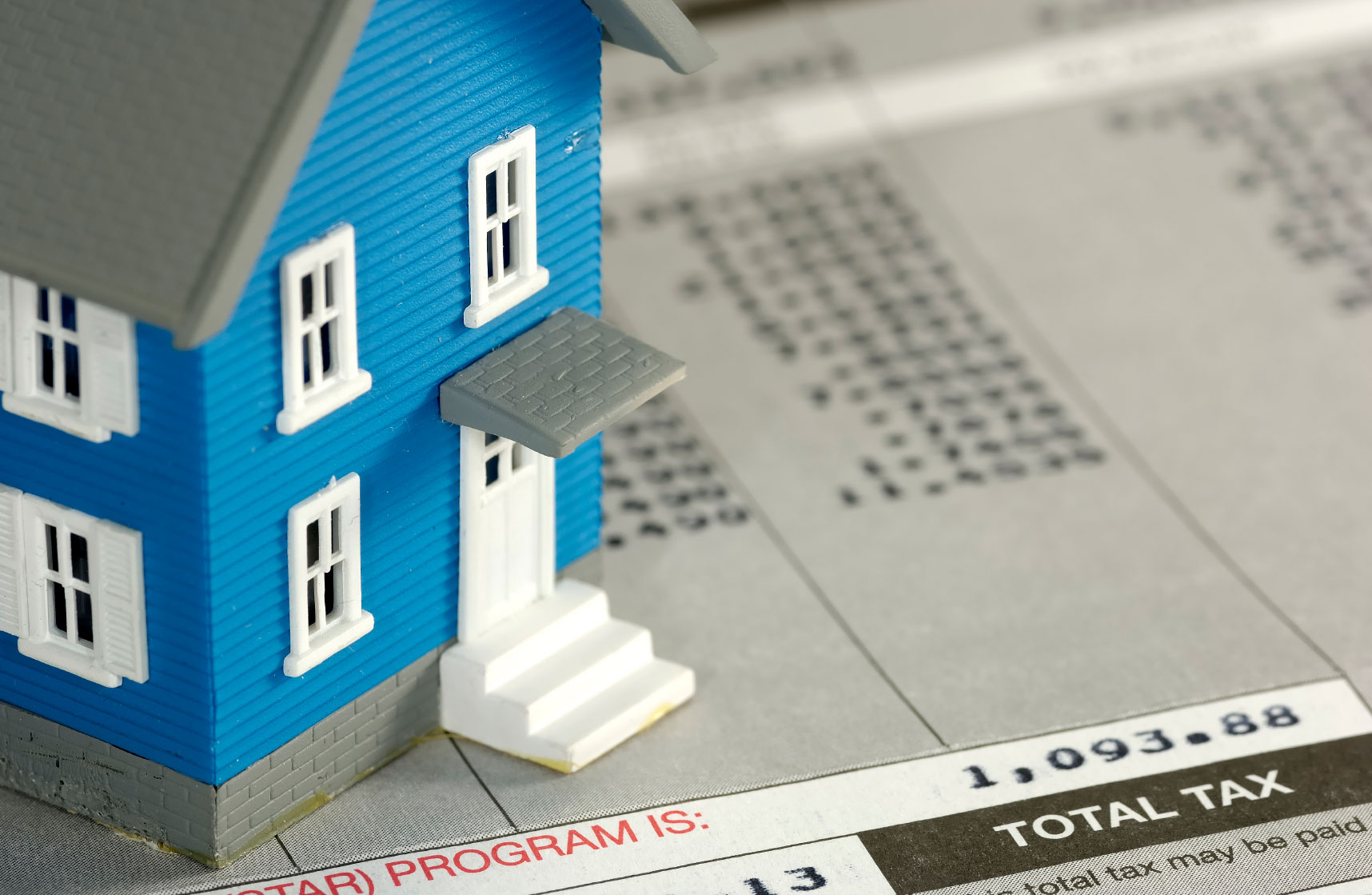Home>Home Maintenance>Property Assessment: How Much Tax Will I Pay


Home Maintenance
Property Assessment: How Much Tax Will I Pay
Modified: March 6, 2024
Find out how much tax you will pay for your property assessment. Learn about home maintenance and its impact on your tax rate.
(Many of the links in this article redirect to a specific reviewed product. Your purchase of these products through affiliate links helps to generate commission for Storables.com, at no extra cost. Learn more)
Introduction
Welcome to the world of property assessment and taxes! Whether you’re a homeowner or a property investor, understanding how property assessments and taxes work is essential. This comprehensive guide will walk you through the process and help you navigate the intricacies of property assessments, so you can have a better understanding of how much tax you will need to pay.
Property assessment is a crucial component of the tax system. Local governments use property assessments to determine the value of your property and calculate your property taxes accordingly. The assessment process involves evaluating various factors that contribute to the value of your property, such as location, size, condition, and recent property sales in the area.
By understanding how property assessments are determined and the factors considered, you’ll be better equipped to anticipate the assessed value of your property and plan your finances accordingly. Knowing how property taxes are calculated and how you can potentially reduce your tax burden through exemptions and deductions will also be beneficial.
Additionally, in the event that you disagree with your property assessment, there is a process for appealing the assessed value. We will explore the steps you can take to challenge your assessment if you believe it is incorrect or unfair.
So, if you’re ready to dive into the world of property assessments and taxes, let’s get started!
Key Takeaways:
- Understanding Property Assessment
Property assessment determines your property’s value for tax purposes. Factors like location, size, and condition are considered. Understanding this process helps you plan for your tax obligations. - Reducing Tax Burden
You can reduce your property tax burden through exemptions and deductions. These include benefits for seniors, veterans, and energy-efficient home improvements. Understanding these options can lead to potential savings.
What is Property Assessment?
Property assessment is the process of determining the value of a property for the purpose of setting property taxes. It is conducted by local government authorities, such as municipalities or counties, to fairly distribute the tax burden among property owners in the area.
The primary goal of property assessment is to establish the market value of a property, which is the estimated price that the property would sell for under normal market conditions. This value serves as the basis for calculating property taxes, as property owners are typically required to pay taxes based on a percentage of the assessed value.
Property assessments are conducted periodically, usually every few years, but the frequency may vary depending on local regulations. When a property assessment is conducted, assessors take into account a range of factors to determine the value of a property.
The assessment process involves gathering data on various aspects of the property, including its location, size, physical condition, and any improvements or renovations that have been made. Additionally, assessors also consider the recent sales prices of similar properties in the area, as well as market trends and economic conditions that may impact property values.
It’s important to note that property assessments are performed by qualified professionals who have expertise in evaluating real estate values. These assessors are required to adhere to specific guidelines and standards set forth by state or local authorities.
While the main purpose of property assessments is to determine the value for taxation purposes, they can also be used for other purposes, such as obtaining financing or insurance on a property. Lenders and insurance companies may rely on property assessments to assess the risk associated with a property and to determine appropriate loan amounts or insurance coverage.
Property assessments provide an objective and standardized way of valuing properties within a jurisdiction. By ensuring that properties are assessed consistently and fairly, property assessments help to create a transparent and equitable tax system.
Now that we have a better understanding of what property assessments are, let’s explore how tax assessments are determined in more detail.
How Tax Assessments are Determined
Tax assessments are determined through a systematic process that involves the collection and analysis of various data points pertaining to a property. The goal is to arrive at an accurate and fair assessment that reflects the market value of the property. Let’s take a closer look at the steps involved in determining tax assessments:
- Data Collection: Assessors begin by gathering relevant information about the property, such as its size, location, age, and physical characteristics. They may also consider factors such as the property’s proximity to amenities, schools, transportation, and other valuable features.
- Property Inspections: In some cases, assessors may conduct physical inspections of the property to assess its condition and any improvements that have been made. This allows them to accurately determine the property’s current state and consider its impact on the value.
- Comparison Analysis: Assessors compare the property in question with similar properties in the area that have recently sold. This analysis helps to establish a benchmark for determining the property’s value in relation to market trends and comparable sales.
- Market Analysis: Assessors consider broader market factors, such as supply and demand, economic conditions, and recent property sales in the local area. This analysis helps to ensure that the assessment reflects current market conditions.
- Valuation: Based on the data collected and the comparison analysis, assessors assign a value to the property. This value is typically referred to as the assessed value, which forms the basis for calculating property taxes.
It’s important to note that tax assessments are typically conducted by qualified and certified assessors who have undergone specific training and adhere to professional standards. These assessors follow guidelines established by state or local authorities to ensure fairness and accuracy in the assessment process.
While the assessment process aims to be as objective as possible, there may be some subjectivity involved, especially when determining the value of unique or specialized properties. However, assessors are trained to make consistent and informed judgments based on their expertise and knowledge of the local real estate market.
Once the tax assessment is determined, it becomes the basis for calculating the property taxes that a homeowner or property owner will be required to pay. Understanding the factors considered in property assessment can help property owners anticipate their tax liability and make informed financial decisions.
Next, let’s delve into the specific factors that are considered in property assessment with the aim of establishing the assessed value of a property.
Factors Considered in Property Assessment
Property assessments take into account several factors that contribute to the overall value of a property. These factors help assessors determine an accurate and fair assessed value. Here are some of the key factors that are considered in property assessment:
- Location: The location of a property plays a significant role in its value. Factors such as proximity to amenities, schools, parks, shopping centers, and transportation can impact property values. Properties in desirable neighborhoods or areas with high demand tend to have higher assessed values.
- Property Size and Shape: The size of the property, including the lot area and dimensions, is taken into account during assessment. Larger properties usually have higher values, while irregularly shaped or oddly sized properties may have adjustments to their assessed value.
- Physical Condition: The condition of the property, including the age, maintenance, and any renovations or improvements, is evaluated. Well-maintained and updated properties generally have higher values than those in disrepair or in need of significant repairs.
- Comparable Sales: Assessors look at recent sales of similar properties in the area to determine the assessed value. Comparing the subject property to similar properties that have recently sold helps establish the market value and ensures consistency in assessment.
- Market Trends: Assessors consider current market trends and economic conditions that may affect property values. Factors such as changes in property values, supply and demand, and overall economic growth or decline are taken into account.
- Income Potential: For properties that generate rental income, assessors consider the income potential when determining the assessed value. Factors such as rental rates, vacancy rates, and operating expenses are taken into account to assess the income-generating potential of a property.
- Zoning and Land Use: The zoning regulations and land use restrictions in the area can impact a property’s value. Assessors consider any limitations or opportunities imposed by zoning laws when determining the assessed value.
- Environmental Factors: Environmental factors, such as proximity to bodies of water, flood zones, or environmental hazards, can influence property values. Assessors take into account any environmental considerations that may affect a property’s value.
It’s important to note that the weight given to each factor may vary depending on local regulations and the specific characteristics of the property. Assessors use their professional judgment and expertise to evaluate these factors and arrive at an assessed value that reflects the fair market value of the property.
By considering these factors, assessors aim to provide a fair and equitable assessment of a property’s value. This ensures that property owners are taxed based on a reasonable estimation of their property’s worth.
Now that we have a better understanding of the factors considered in property assessment, let’s explore how the assessed value is calculated and how it relates to the property taxes you will pay.
Understanding Assessed Value
Assessed value is the estimated value of a property determined by local government authorities for the purpose of calculating property taxes. It is important to understand the concept of assessed value as it directly influences the amount of tax you will be required to pay.
The assessed value of a property is typically expressed as a percentage of its fair market value. This percentage, known as the assessment ratio or assessment rate, varies depending on the jurisdiction and can range from 80% to 100%. For example, if the assessment ratio is set at 90% and the fair market value of your property is $300,000, the assessed value would be $270,000 (90% of $300,000).
The assessed value serves as the basis for calculating the property taxes you owe. To determine your tax liability, the assessed value is multiplied by the local tax rate, also known as the millage rate. The millage rate represents the amount of tax per $1,000 of assessed value. For example, if the millage rate is 50 mills and your assessed value is $270,000, your property tax before any exemptions or deductions would be $13,500.
It is important to note that the assessed value may not always align with the current market value of a property. Market values fluctuate based on economic conditions, property improvements, and other factors, while assessed values are typically updated periodically, often every few years. Therefore, the assessed value may lag behind the current market value.
While some homeowners may be concerned about their assessed value coming in higher than expected, it’s important to remember that property taxes are based on a percentage of the assessed value. So, even if your assessed value increases, your tax liability will only increase proportionally if the millage rate remains the same. Similarly, if your assessed value decreases, your tax liability may decrease as well.
Understanding the concept of assessed value can help you anticipate your property tax obligations and plan your finances accordingly. By keeping track of changes in your property’s assessed value and staying informed about the millage rates in your area, you can effectively budget for your property tax payments.
Now that we have a good understanding of assessed value, let’s explore how property taxes are calculated based on the assessed value, and how you may be eligible for exemptions or deductions to reduce your tax burden.
When calculating property tax, be sure to consider the assessed value of your property, the local tax rate, and any applicable exemptions or deductions. You can usually find this information on your local government’s website or by contacting your assessor’s office.
Read more: How Do I Obtain Tax Property Assessment
Calculating Property Taxes
Property taxes are calculated based on the assessed value of a property and the applicable tax rate set by the local government. Understanding how property taxes are calculated can help you estimate your tax liability and plan your finances accordingly.
To calculate property taxes, follow these steps:
- Find Your Assessed Value: Start by determining the assessed value of your property. The assessed value is typically a percentage of the property’s fair market value, as determined by the local government. This value is used as the basis for calculating property taxes.
- Check the Millage Rate: The millage rate is the tax rate applied to the assessed value of a property. It is expressed in “mills,” with one mill being equal to one-thousandth of a dollar. For example, a millage rate of 50 mills indicates $50 in taxes for every $1,000 of assessed value.
- Calculate the Tax Amount: Multiply the assessed value of your property by the millage rate to determine the annual property tax amount. For instance, if your property has an assessed value of $250,000 and the millage rate is 50 mills, the annual property tax would be $12,500 (250,000 * 0.050).
- Consider Additional Fees: In some jurisdictions, there may be additional fees or levies, such as school taxes or special assessments, that need to be added to the calculated property tax amount. Check with your local government or tax assessor’s office to determine if any additional charges apply to your property.
- Timing and Payment: Property taxes are typically due annually or semi-annually. Check with your local tax authority to verify the due dates and payment options. Failure to pay property taxes on time can result in penalties and interest charges.
It’s important to note that property tax rates can vary widely depending on your location. Different jurisdictions have different funding needs, which can result in significant variations in tax rates. Therefore, it’s essential to research and understand the tax rates in your specific area.
Property taxes play a vital role in funding local government services, such as schools, infrastructure maintenance, emergency services, and public amenities. It’s important to recognize that property tax revenue helps support and maintain the community in which you live.
Furthermore, the assessed value and property tax amounts can change over time. Assessments are typically conducted periodically, which means your property’s assessed value may be adjusted based on market conditions and other factors. It’s advisable to be aware of these changes and review your property tax assessments regularly.
In some cases, you may be eligible for exemptions or deductions that can reduce your property tax liability. These exemptions or deductions may be available for certain homeowners, such as seniors, veterans, or individuals with disabilities. Additionally, property tax relief programs may exist for individuals who meet specific income criteria. Check with your local tax authority or assessor’s office to explore the options available in your area.
By understanding the calculation of property taxes and being aware of any exemptions or deductions, you can better plan for your property tax obligations and manage your overall financial responsibilities.
Next, let’s explore the concept of tax exemptions and deductions and how they can help reduce your property tax burden.
Tax Exemptions and Deductions
When it comes to property taxes, there may be opportunities for homeowners to reduce their tax burden through tax exemptions and deductions. Understanding these options can help you take advantage of potential savings and lower your property tax liability. Let’s explore the concept of tax exemptions and deductions:
Tax Exemptions: Tax exemptions are specific conditions that, if met, allow certain homeowners to be excluded from paying a portion of their property taxes. These exemptions are typically based on criteria such as age, disability, or veteran status. Common types of tax exemptions include:
- Senior Exemptions: Many jurisdictions offer property tax exemptions for senior citizens who meet age requirements. These exemptions can provide significant savings for eligible individuals.
- Disability Exemptions: Homeowners with disabilities may qualify for property tax exemptions. The disability must meet specific criteria outlined by the tax authority, and documentation may need to be provided.
- Veteran Exemptions: Veterans who have served in the military may be eligible for property tax exemptions as a gesture of gratitude for their service. The requirements for these exemptions vary by jurisdiction.
- Homestead Exemptions: Homestead exemptions are available to homeowners who use their property as their primary residence. These exemptions provide a reduction in property taxes for qualifying homeowners.
Tax Deductions: Tax deductions allow homeowners to reduce their taxable income, which can indirectly lower their property tax liability. While deductions don’t directly reduce the assessed value or property tax rate, they can lower the overall amount of income subject to taxation. Common deductions related to property taxes include:
- Mortgage Interest Deduction: Homeowners who have a mortgage may be able to deduct the interest paid on their loan. This can result in significant tax savings, especially during the early years of the mortgage when interest payments are typically higher.
- State and Local Tax Deduction: Homeowners can deduct their state and local property taxes on their federal income tax return. This deduction helps offset the impact of property taxes on overall tax liabilities.
- Energy Efficiency Deductions: In some cases, homeowners who make energy-efficient home improvements, such as installing solar panels or energy-efficient windows, may be eligible for tax deductions or credits. These incentives aim to promote environmental sustainability and energy conservation.
It’s important to note that tax exemptions and deductions vary by jurisdiction, and eligibility criteria may differ. It’s recommended to consult with a tax professional or refer to your local tax authority for specific information regarding available exemptions and deductions in your area.
When considering tax exemptions and deductions, it’s essential to keep track of any application deadlines or required documentation. Failing to meet the deadlines or provide the necessary paperwork may result in missed opportunities for tax savings.
By taking advantage of available exemptions and deductions, you can potentially reduce your property tax liability and keep more money in your pocket. Be proactive in researching and understanding the options available to you, and consult with professionals if needed, to maximize your tax savings.
Now that you’re equipped with knowledge about tax exemptions and deductions, let’s explore the process of appealing property assessments if you believe they are inaccurate or unfair.
Appealing Property Assessments
If you believe that your property assessment is inaccurate or unfair, you have the right to appeal the assessment. The appeals process allows you to present evidence and arguments to contest the assessed value of your property. Here are the key steps to consider when appealing a property assessment:
- Review Your Assessment Notice: Start by carefully reviewing the assessment notice you received from the tax authority. Pay attention to the assessed value and any relevant details about the valuation process. This will provide the foundation for your appeal.
- Gather Supporting Evidence: Collect evidence that supports your claim that the assessed value is incorrect. This may include recent appraisal reports, sales data for similar properties, or any documentation that highlights errors or inconsistencies in the assessment process.
- Contact the Assessor’s Office: Reach out to the tax assessor’s office to understand the specific requirements and deadlines for appealing your property assessment. They can provide guidance on the necessary forms to fill out and the supporting documentation needed.
- File an Appeal: Complete the necessary appeal form and submit it within the designated timeframe. Make sure to include all relevant information, such as your contact details, property information, and the reasons why you believe the assessed value is incorrect.
- Prepare for a Hearing: In some cases, a formal hearing may be scheduled to discuss your appeal. During the hearing, you will have the opportunity to present your evidence and argue your case. Be prepared to explain why you believe the assessed value should be adjusted.
- Provide Documentation and Present Your Case: Present your supporting evidence during the hearing. This may include appraisals, comparable sales data, or any other documentation that supports your claim. Clearly articulate your arguments and be prepared to answer any questions from the review board or hearing officer.
- Receive a Decision: After reviewing your appeal and the evidence presented, the review board or hearing officer will make a decision. You will be notified of the outcome, either by mail or in person. If your appeal is successful, your assessed value may be adjusted, leading to a change in your property tax liability.
- Consider Further Appeals: If you are dissatisfied with the decision of the review board or hearing officer, you may have the option to pursue further appeals. This might involve an appeal to a higher-level administrative or judicial body, depending on the jurisdiction.
It’s important to note that the appeals process and requirements may vary depending on your location. Some jurisdictions may have specific forms and deadlines, while others may have different levels of appeal available. It’s advisable to consult with a tax professional or seek guidance from the tax assessor’s office to ensure that you follow the correct procedures.
When appealing a property assessment, it is crucial to remain organized, diligent, and professional throughout the process. Provide accurate information, back your claims with strong supporting evidence, and present your case in a clear and concise manner. Remember that the burden of proof is typically on the property owner to demonstrate that the assessed value is incorrect.
By exercising your right to appeal, you can ensure that your property is assessed fairly and accurately. This helps maintain the integrity of the property assessment system and ensures that property taxes are properly distributed based on the true market value of each property.
Now that we have explored the appeals process, let’s wrap up our guide to property assessment and taxes.
Conclusion
Property assessment and taxes are an intricate part of homeownership and property investment. Having a solid understanding of how property assessments work and how taxes are calculated is essential for managing your finances effectively. Throughout this comprehensive guide, we have explored various aspects of property assessment and taxes, empowering you with valuable knowledge to navigate this complex landscape.
We started by introducing the concept of property assessment and its role in determining property taxes. Understanding the factors considered in property assessment, such as location, size, condition, and market trends, helps ensure fair and accurate assessments.
We then delved into the calculation of property taxes, explaining how assessed value, millage rates, and additional fees contribute to your tax liability. By understanding this process, you can better anticipate your tax obligations and plan your finances accordingly.
We also discussed tax exemptions and deductions, which offer opportunities to reduce your property tax burden. Knowing the available exemptions and deductions, such as those for seniors, people with disabilities, or veterans, can help maximize your potential savings.
Additionally, we explored the appeals process for property assessments. Should you believe that your assessed value is inaccurate or unfair, understanding the steps involved in appealing can help you seek a fair resolution.
By being informed and proactive, you can effectively manage your property taxes and make informed decisions. Regularly reviewing your property assessments, staying updated on local tax policies, and exploring potential savings through exemptions and deductions are all key strategies for minimizing your tax burden.
However, it’s important to remember that property taxes are crucial for funding local government services and maintaining the community in which you live. By paying your fair share of taxes, you contribute to the development and maintenance of infrastructure, schools, emergency services, and more.
We hope that this guide has provided you with valuable insights and practical knowledge to navigate the world of property assessment and taxes. Remember to consult with professionals, such as tax advisors or local tax authorities, for specific information and guidance tailored to your situation and location.
Thank you for joining us on this journey, and here’s to better understanding and managing your property assessments and taxes!
Frequently Asked Questions about Property Assessment: How Much Tax Will I Pay
Was this page helpful?
At Storables.com, we guarantee accurate and reliable information. Our content, validated by Expert Board Contributors, is crafted following stringent Editorial Policies. We're committed to providing you with well-researched, expert-backed insights for all your informational needs.















0 thoughts on “Property Assessment: How Much Tax Will I Pay”